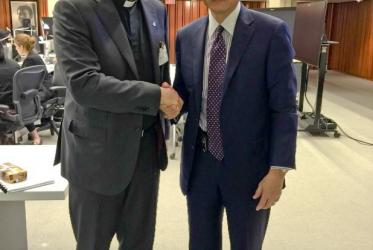Displaying 1 - 9 of 9
09 February 2024
Pan African Women of Faith issue fervent Call to Action
20 November 2018
Re-engineering life forms: Church forum raises concerns
09 November 2017
Responsible agriculture investments theme of WCC session
16 October 2017
G20 summit: call to pray for peace in Hamburg
07 July 2017
G7 must address famine
22 May 2017




